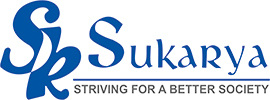By Meera Satpathy
Education is a dream for millions of children who struggle to survive daily. In India, where millions of children face formidable challenges in accessing quality education due to various socio-economic constraints, Education on Wheels (EOW) emerges as a transformative force. This innovative initiative, initiated by Sukarya in 2014, brings the school directly to the students, revolutionizing the way education is delivered.
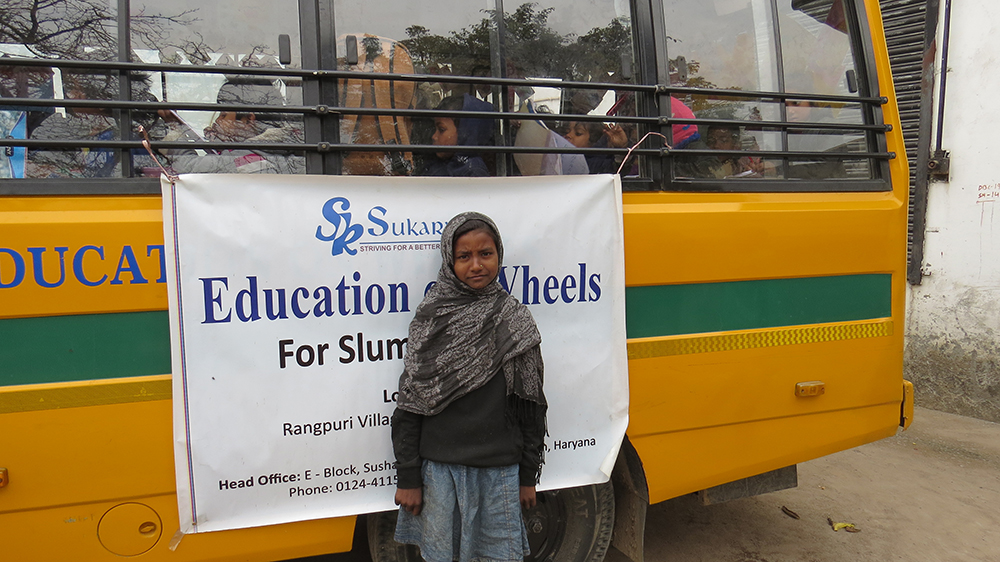
Vision of Education on Wheels: EOW envisions a world where every child, regardless of their background, has the opportunity to receive a quality education. It recognizes the harsh reality faced by children whose parents must leave them unattended during the day while they work to support their families. EOW is designed to bridge the gap between these children and their educational dreams.
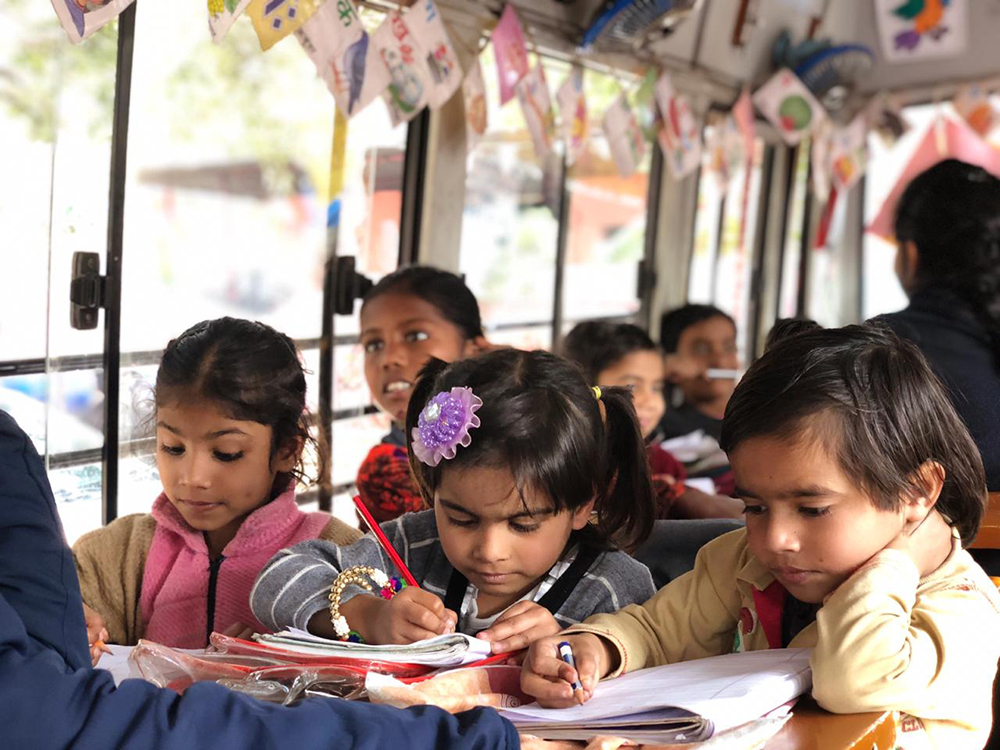
The Alarming State of Illiteracy in India: Education on Wheels is a crucial response to the dire state of illiteracy in India. According to a report by the National Sample Survey Office (NSSO) in 2014, 32 million Indian children up to the age of 13 had never attended school, with the majority coming from socially disadvantaged backgrounds. Furthermore, UNESCO’s 2019 Global Education Monitoring (GEM) report revealed that 80% of migrant children in seven Indian cities lacked access to education near their worksites, leaving 40% of children from seasonal migrant households vulnerable to exploitation and abuse.
The Mobile Classroom: At the heart of EOW is the concept of a mobile classroom. These well-equipped buses serve as vessels of knowledge, moving with dedicated teachers to different locations, especially in slums and marginalized communities. These buses are equipped with computers, televisions, and other essential educational materials, eliminating barriers such as distance, travel difficulties, and safety concerns.
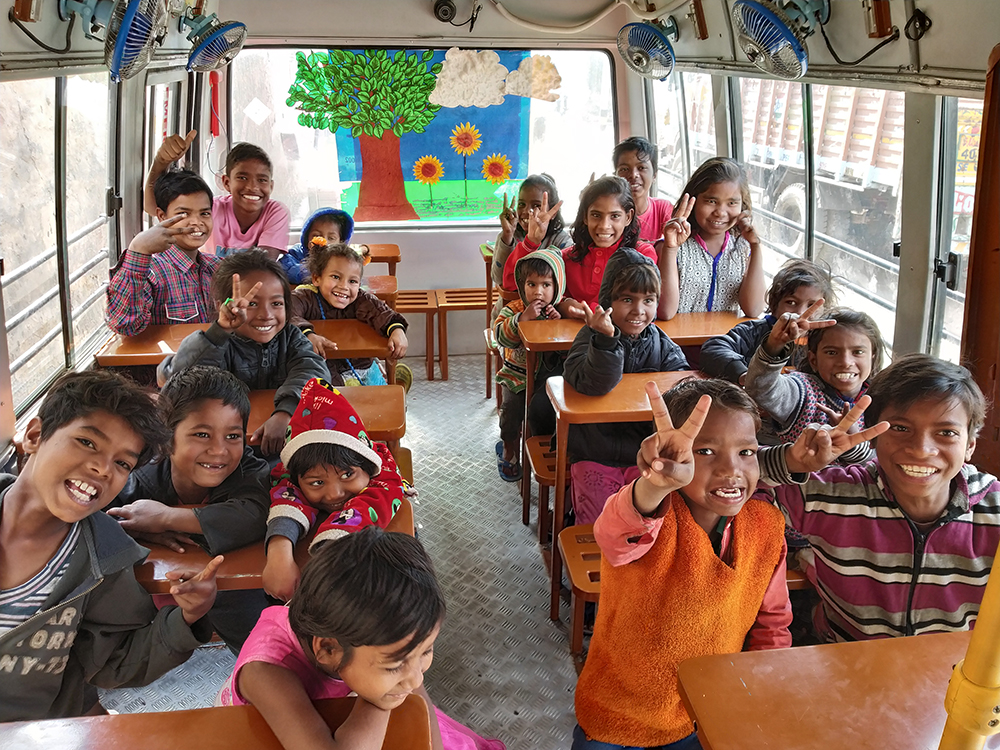
Empowering the Marginalized and Vulnerable Communities: EOW primarily focuses on first-generation learners living on the fringes of society, often engaged in part-time work to support their families. These children face financial constraints and daily life demands that make education a low priority. However, EOW’s innovative teaching methods and adaptable curriculum have been warmly embraced by these young learners, providing them with a lifeline to education. EOW goes beyond mere educational delivery, addressing the complex socio-economic factors that hinder access to education for many children.
Key Features of the Program:
- Innovative Teaching Methodology: EOW employs a non-traditional teaching style tailored to the unique needs of these children, ensuring effective learning and engagement.
- Non-Formal Education: The program specializes in non-formal education, offering remedial classes to reintegrate school dropouts and provide functional literacy.
- Gender Equality: EOW promotes gender equality by ensuring that at least 50% of enrolled students are girls, empowering them through education.
Program Components: The program provides Non-Formal Education for those who have never attended school and Remedial Education for school dropouts, with key components including:
- Multi-grade Teaching: EOW provides multi-grade teaching where students of different age groups and levels of learning are taught under one roof.
- Monthly Parent-Teacher Meetings: Regular meetings between parents and teachers help address academic performance and other issues, fostering a strong sense of community and involvement.
- Annual and Monthly Learning Tests: Assessments ensure that students are progressing in their education, providing valuable feedback for improvement.
- Computer Classes: In a rapidly digitalizing world, EOW equips students with basic digital skills, enhancing their employability.
- Screenings of Inspirational Movies: EOW goes beyond academics, offering students exposure to inspirational movies that broaden their horizons and nurture their aspirations.
- Exposure Visits: These visits allow students to explore the world beyond their immediate surroundings, opening their minds to new possibilities.
- Open Basic Education Classes: EOW prepares older students for mainstream education through recognized distance education programs.
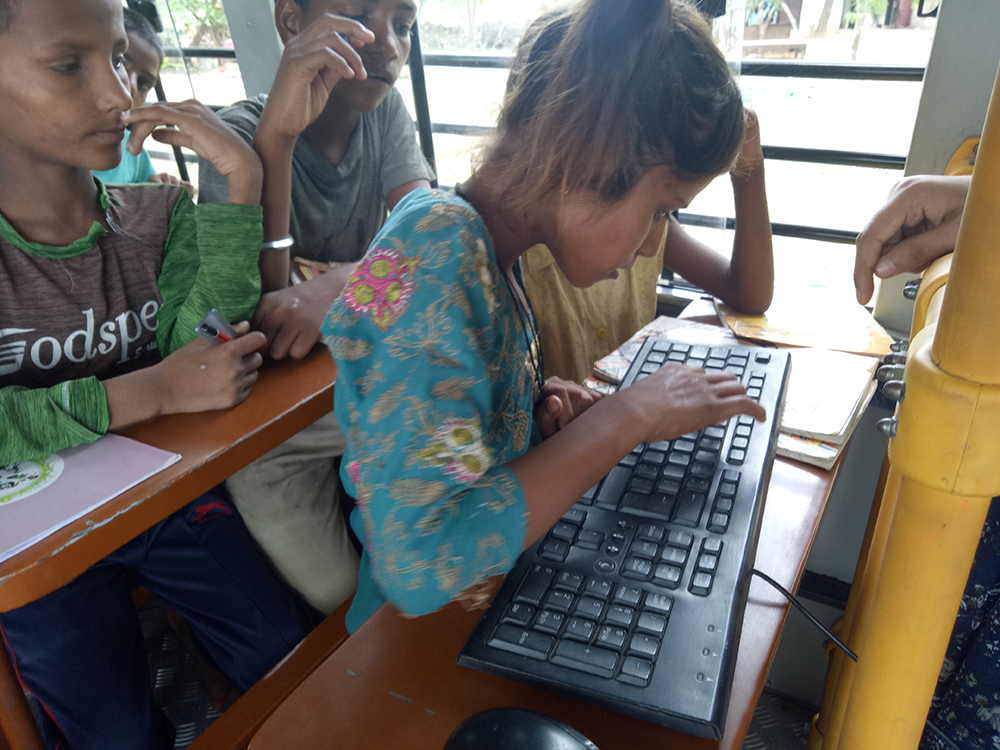
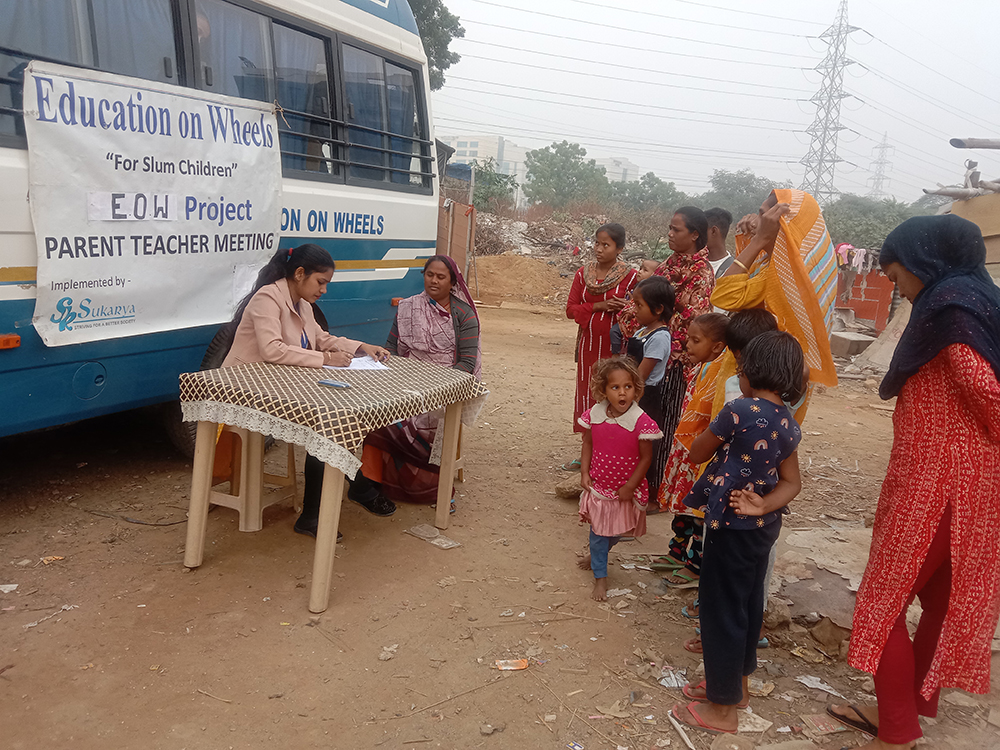
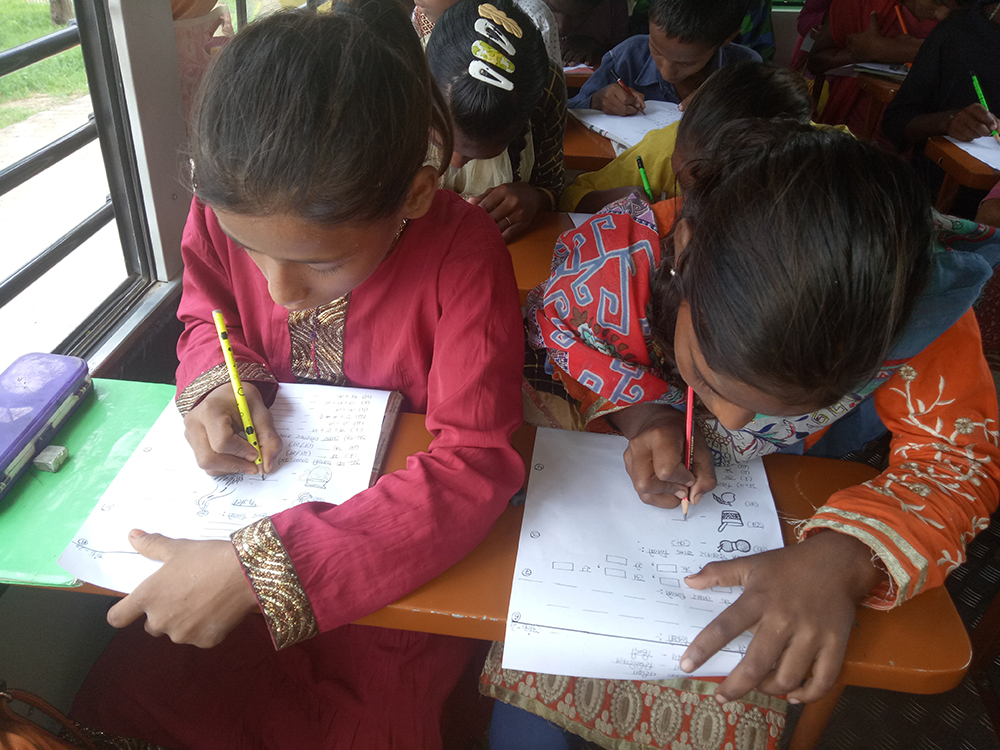
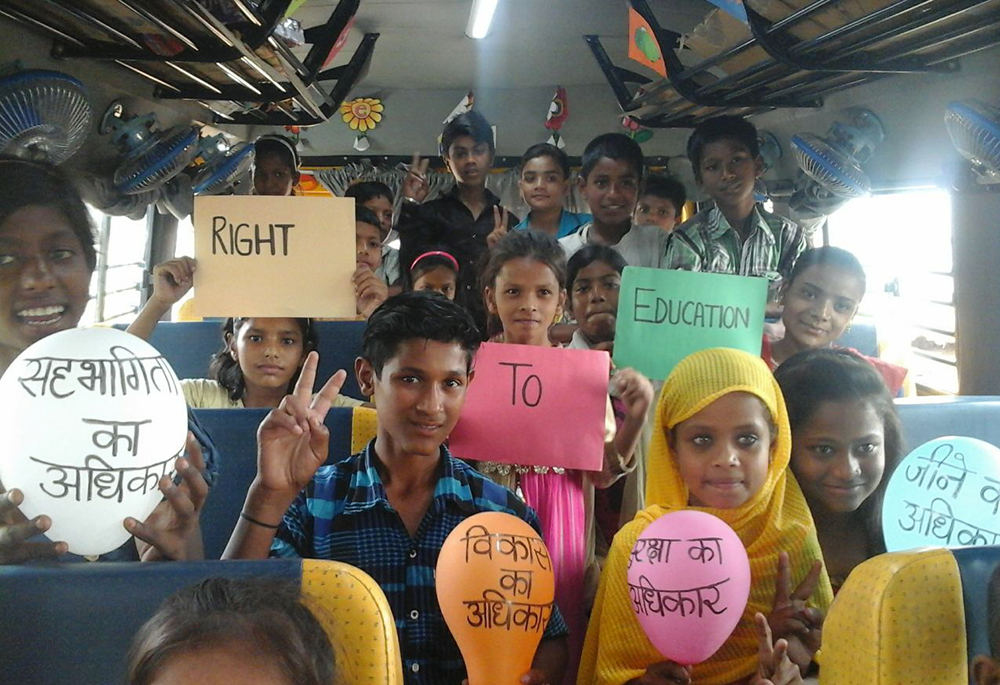
Mainstreaming of Successful Children into Formal Schools
A cornerstone of the Education on Wheels (EOW) initiative is the mainstreaming of successful children into formal schools, a critical step towards ensuring their continued educational development. This is achieved through the Open Basic Education (OBE) Examination, administered by the National Institute of Open Schooling (NIOS). These educational services are crucial for reintegrating out-of-school children into the formal education system, thus ensuring they have the opportunity for a brighter future.
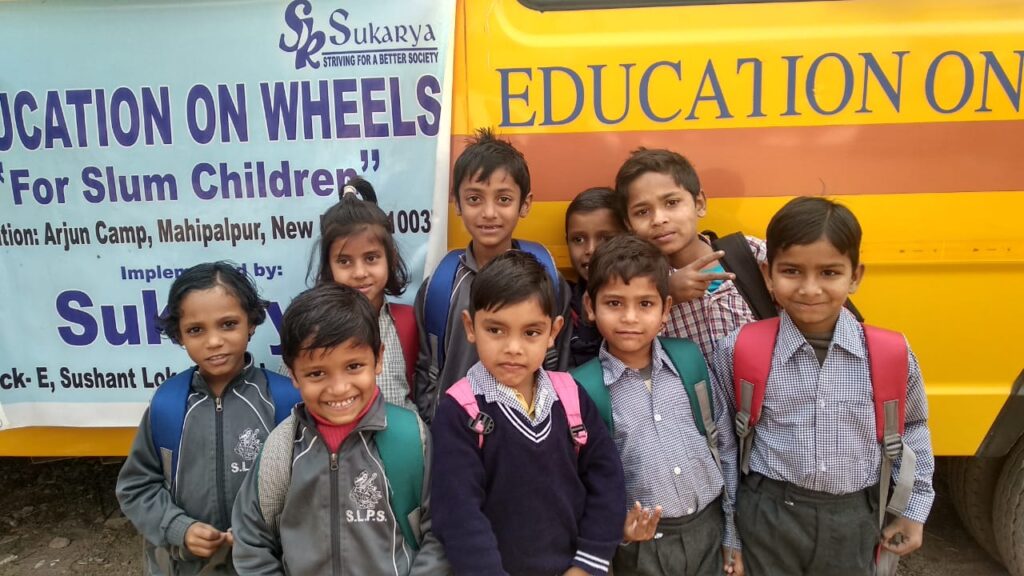
Impact and Future Goals: The Education on Wheels program aspires to transform education into an exciting and enjoyable journey for marginalized children, empowering them to become responsible and knowledgeable citizens. It aims to integrate all students effectively, preparing them for formal education, future examinations, and promising career prospects.
We have educated 2500 children through EOW since 2014.
EOW’s reach extends beyond the classroom. The program seeks to raise community awareness regarding the significance of education, health, hygiene, and child rights. By bringing about positive changes in social attitudes and empowering the community, it ensures a more inclusive and informed society.
In the long term, EOW contributes to economic empowerment by equipping children and their families with knowledge and employability skills, thereby increasing their chances of securing stable and sustainable jobs or businesses. The program is committed to promoting gender equality by ensuring that girls have equal access to educational opportunities.
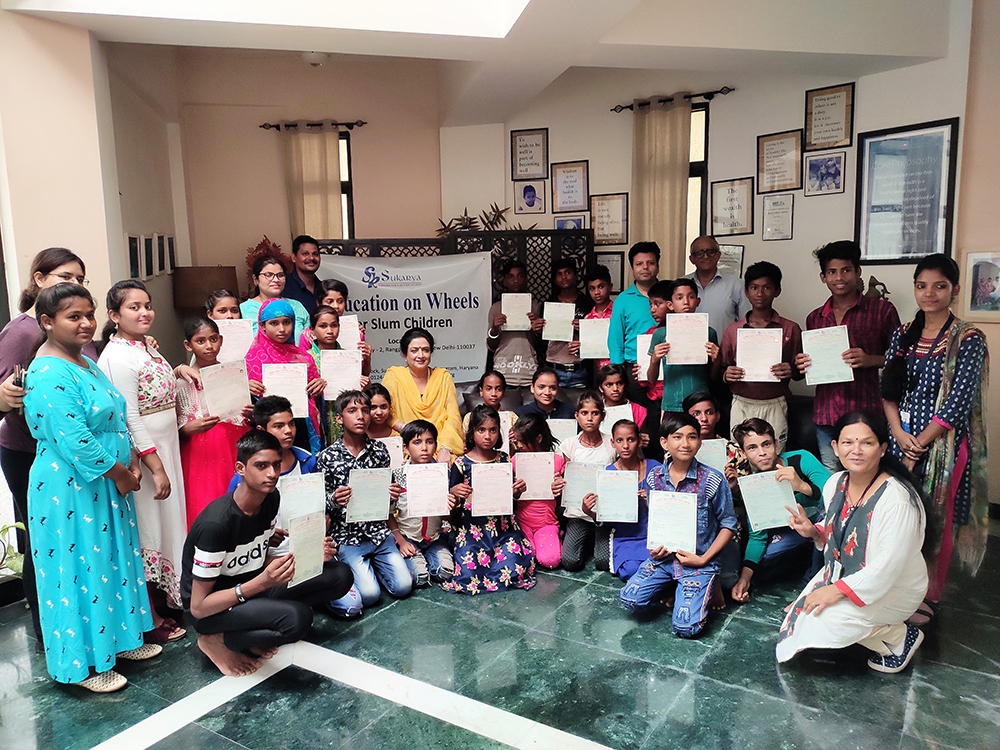
Ghar Se Shuru: Transforming Lives from Home
In 2022, Sukarya embarked on an extraordinary journey with the “Ghar Se Shuru” campaign, recognizing that true change begins at home, in the very heart of our communities. It encourages parents to be the catalysts for their children’s growth, focusing on decision-making skills, problem-solving abilities, personal hygiene, meal preparation, and effective communication, all starting right from their own homes.
This initiative synergizes seamlessly with the Education on Wheels Program, where parents play a pivotal role in fostering nurturing environments that promote positive health practices, gender equality, and a deep appreciation for education within families.
Supporting Mainstreamed Children: EOW’s commitment to education doesn’t end when students transition to formal schools. Recognizing the financial challenges faced by mainstreamed students, the program takes a proactive role in their continued education. It sponsors selected meritorious students, ensuring they have the necessary resources to pursue their educational dreams. This includes providing books, stationery, transportation, and essential nutritional support, ensuring that these promising individuals have the tools they need to succeed in their academic journey.
In a nation where the battle against illiteracy and educational inequality remains a formidable challenge, Education on Wheels is a ray of hope. It is a testament to the power of innovation, determination, and the belief that every child, regardless of their circumstances, deserves the opportunity to learn, grow, and succeed.
Conclusion: Education on Wheels is not just a program; it is a lifeline, a catalyst for change, and a symbol of resilience. As it continues to reach the unreached and empower the marginalized, EOW is paving the way for a brighter, more inclusive, and more educated India. It is a reminder that education knows no boundaries and that, with the right support, every child can dream, aspire, and achieve.
